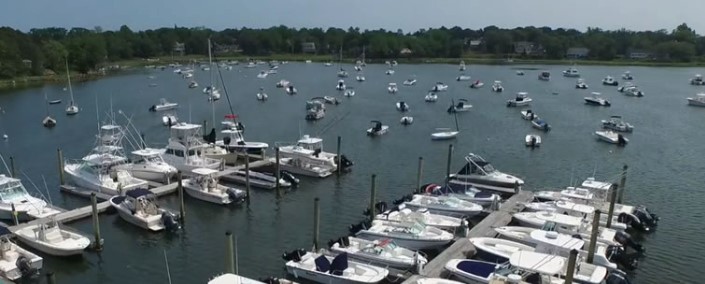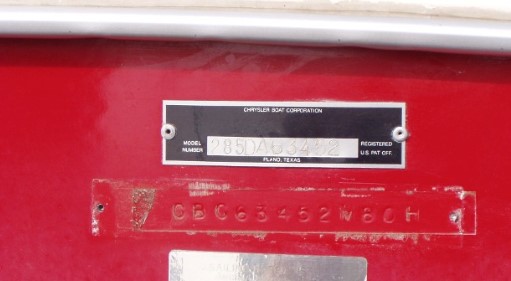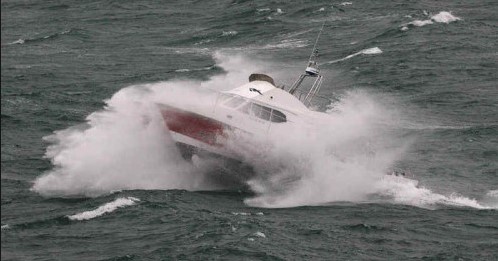How to Buy a Used Boat

BoatTEST.com studies indicate – Approximately 80% of the boaters currently in the market for a boat are searching for used boats. But buying a used boat is much more difficult, and fraught with many more problems than buying a new boat. In order to help our BoatTEST Members who are contemplating buying a pre-owned boat, we are offering an in-depth report with 13 points to consider.
1. Identify with as much exactitude as you can – What type, length, power, and brand of boat you are interested in. (BoatTEST.com is a great resource to zero-in on the type of boat, brand, and model right for your needs.)
a. Understand the brand – What is the brands standing in the type of boat that you are considering. For example, is it a “value” brand – which is code for low-priced? Is the brand still in production? What is the brand's reputation? Brands with high production will generally sell for less than the “marquee” brands in any type or category of boat, which will nearly always be fewer in number. Understand the “pecking order” of brands in the region where you will be boating. What may be considered a Mercedes or Lexus in some areas, may be considered a Chevy in others.
b. Make sure you understand the status of the engine – which is to say, is it state of the art, or obsolete, or inefficient, or does it carry some other “baggage” not readily apparent? For example, old 2-stroke diesel engines are generally not considered as desirable as 4-stroke diesel engines. EFI engines are easier to start and generally more fuel efficient than carbureted engines. The boat with the less desirable power should be less expensive and you must decide if the savings in the purchase price is worth the compromise in performance, operating costs, and resale.
c. Size matters, the largest is not always the best – Historically, many boaters have bought the largest boat they could afford, but remember that virtually everything will cost more when operating a larger boat.

2. Decide how much you can comfortably afford – Affordability means more than simply the asking price. There is more to consider such as a down payment, annual operation budget, and monthly storage and maintenance costs for the boat you desire.
3. Determine the market price range – Check both the number of years and engine hours of the boats you can afford that meets the criteria established in #1 and #2. Use Internet classified websites such as BoatTEST.com, Boattrader.com, and Boatshop24.com (in Europe), to determine how much your dream boat is selling for.
4. Now, determine the condition of the boats – The newest boat, in the best condition with the lowest engine hours is the most desirable. Put these on your “short list.”
5. Are there any transferrable warranties? – Check to determine if any of the boats on your short list have any transferrable warranties? If so, what are they worth? If not, you generally can buy service contracts on boats built during the last six years.
6. Why is this boat being sold and what is its history? – This is important. Know the “provenance” (list of owners and its relevant history since it was first sold) of the boat you buy. There are many apparently “good deals” – even “steals” – on the market. “Apparently” is the key word here. Some may be stolen. Some have gone through a hurricane, been bought as salvage, been refurbished, and then offered for sale. Some have been repossessed from owners who neglected the boats for years and finally stopped making payments. Generally, boats owned by a single owner are more desirable than those which have been passed through several hands. Use Boathistory.com to determine many of the important factors below – it is a trusted low-cost service.
a. Check the required Hull Identification Number (HIN) and make sure it has not been tampered with.

b. Documentation – Get copies of the title, registration, or documentation and bills of sale.
c. Maintenance – Try to get maintenance records. Owners of well-maintained boats will often have them.
d. Ownership – Make sure the seller owns the boat outright. Many boats are owned by partners.

7. How is the boat equipped? – Make sure all required and necessary equipment is on the boat and in good working order. If the segment in which you are looking has many boats on the market, you can generally find boats that have not only everything required, but also virtually everything you will need or want. Be picky.
8. Make your own detailed and careful inspection – Look for clues of neglect, damage, poor construction, and harsh use and abuse. Examine obvious features such as the gel coat, woodwork, and upholstery. If these haven't been maintained, then there's a good chance the rest of the boat has not had much care either. Is there gelcoat cracking and “spiders” or “cobwebs” at corners?
a. Check all decking for any soft spots – Is the deck spongy? If so, exit immediately. Look for rust in the engine room, oil under the engine, old, soft hoses and the like. Look for water lines inside the boat or on the engine. These indicate that the boat has flooded in the past.
b. Surface condition – Are any parts of the exterior paintwork or gelcoat poorly matching? This may indicate a previous accident.
c. Control Systems – Check that all the control cables, hydraulics, and actuators (for steering, throttle, etc.) are in good working order.
d. Hatches – Open and close all the hatches to ensure they're in good working order. Watermarks inside the hatches would indicate that they are no longer water-tight.
e. Seacocks – Check all through-holes and the associated seacocks. They should be watertight and open and close easily.
f. Other Systems – You should test all the systems such as the bilge pump, winches, freshwater system, lights, heater, and air conditioning, generator, stove, etc.
g. Hardware – Check that all hardware is attached firmly and that electrical items and connections are free from rust and corrosion.
9. Sea Trial – If you are reasonably sure you have found the boat you want to buy, then ask for a sea trial. Don’t assume that the boat will behave the way you think it will once on the water. You must experience the boat for yourself. Does the boat fit your body? How does the boat handle? Is the steering responsive? Cross waves from different angles. Is the boat wet? Stable? Make sure that all the instruments are working correctly, and run the engine for long enough to see if it'll overheat. Will the engine turn its maximum RPMs? Is the boat underpowered or overpowered?

10. Get a professional marine surveyor – Once you have found a boat you want to buy, have done your own inspection, and you have negotiated a satisfactory price, then you need to have the boat and engine inspected by an expert. Hiring a professional surveyor is worth the money. Most surveyors are not mechanics so you will need a mechanic to inspect the engine(s), check compression, do an analysis of metals in the oil to check for wear, and generally make sure all is in good working order.
SAMS and NAMS – No matter what the price of the boat, money spent on good inspections will help ensure (but not guaranteed!) that you know what you are buying. Good places to start are The Society of Accredited Marine Surveyors (SAMS) and The National Association of Marine Surveyors (NAMS).
11. Beware of fraud – Just as in virtually every other business, when buying a pre-owned item, you must be on guard for fraud. Does the price seem too good to be true? If so, it probably is. Yes, there are good deals out there and there are boat owners who need to raise cash and take a “haircut” on their boat – but this situation is also an ideal cover story for con men. BoatTEST.com recommends that you deal with a well-known and well-regarded boat dealer or broker and get them on the hook to vouch for the boat.
12. Be extra careful – When buying a boat directly from an owner use extra caution. The best boat to buy may be from a good friend of yours and be a boat with which you are already familiar.
a. Escrow – Any deposit money should always be put in escrow or held by a trusted third party until all of the inspections and paperwork are worked out. The boat may either be stolen or the seller may take your deposit and never be contactable again. Make sure that you get the real address of the seller; you should be suspicious of anyone who only uses a PO Box.
b. Verify all the contact details of the seller – If there is an email address, make sure you can get a reply. Get a telephone number from them and make sure it works. Visit both the boat and the owner’s home in person.
c. Oversea Deals – If the boat is in a different country from the seller, be extra cautious, and take even more care if either is outside of your own country.
d. Go by your Gut – If anything, just doesn't seem right, don't dismiss those feelings until you've checked them out. Often your instincts are correct. When in doubt, throw it out!
13. A word to “bottom feeders” – Yes, it is true that to come out as well as possible when you sell your boat, you must buy it at the right price. However, buyers hell-bent on finding the lowest price for any given boat are at the highest risk of getting a mess, a disappointment, and a “good deal less” than what they bargained for. People pay a premium for a good boat for a good reason. If you are a “bottom feeder” and get bitten yourself, you will find few who will offer you any sympathy, much less help.